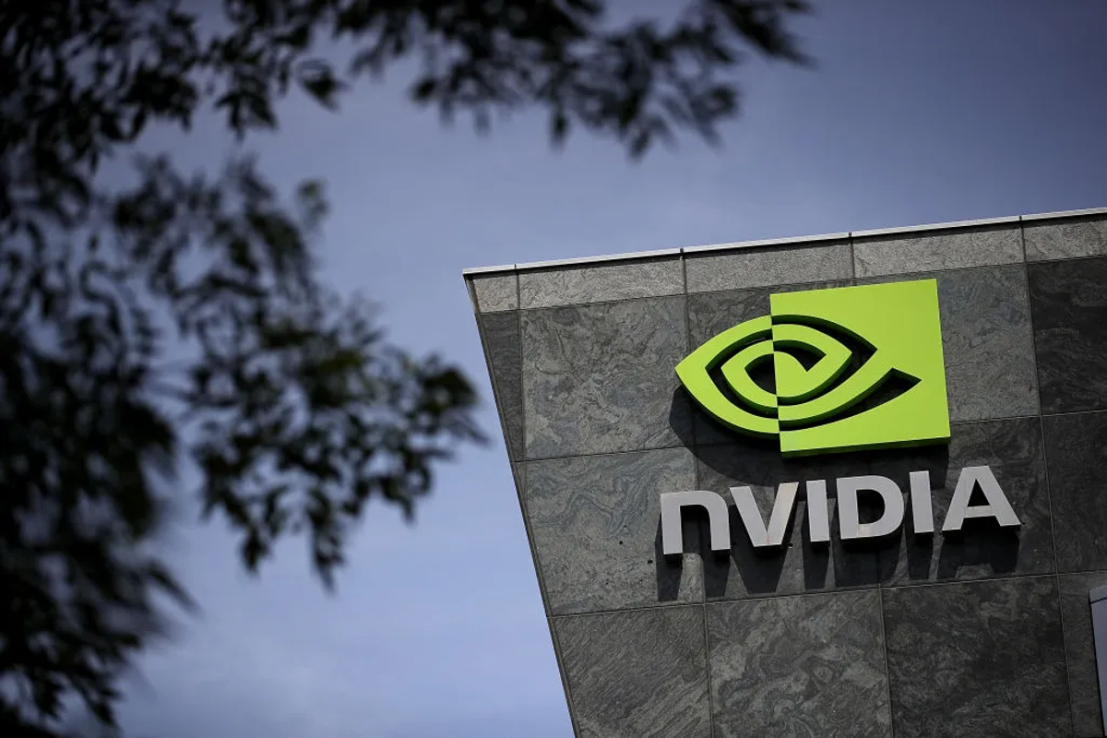
Nvidia’s earnings once again beat expectations last night, but the AI chipmaker’s shares slipped in after-hours trading due to ongoing uncertainty over China.
The Silicon Valley-based group, now worth more than $4tn (£3.1tn) reported fiscal second-quarter revenue of $46.7bn, up 56 per cent year on year, with adjusted earnings per share of $1.05.
Both figures came in ahead of Wall Street forecasts. Profit for the quarter jumped 59 per cent to $26.4bn.
Data centre growth slows
Sales from Nvidia’s data centre division, the engine of the AI revolution, reached $41.1bn, up more than 50 per cent on a year earlier but narrowly missing analyst estimates of $41.3bn.
Cloud providers accounted for around half of that figure, with Nvidia’s next-generation Blackwell chips driving a 17 per cent rise quarter on quarter.
“Another impressive performance by Nvidia, with signs that interest in their state-of-the-art products, such as Blackwell, remains high”, said Alvin Nguyen, senior analyst at Forrester.
“The company is making strategic moves across areas under their control, including innovation in robotics and promoting use cases like reasoning AI”.
Gaming revenue hit $4.3bn, a 49 per cent jump, while robotics sales surged 69 per cent to $586m.
Nvidia also unveiled an additional $60bn share buyback programme, having already spent $9.7bn repurchasing its stock this quarter.
But the China question dominated. Nvidia sold no H20 chips into the country during the period after new US export curbs, though it managed to shift $650m worth of the chips to a non-Chinese customer.
Crucially, its Q3 guidance of $52.9bn–$55.1bn excluded China, coming in below the more bullish forecasts that had factored in resumed sales.
Some analysts had pencilled in revenue closer to $60bn.
Shares fell more than three per cent in late trading on Wednesday, despite being up 35 per cent so far this year.
Markets also wobbled more broadly, with US equity futures retreating after these results, signalling that investor nerves around AI valuations remain.
China in focus
Chief executive Jensen Huang warned: “The platform that wins China is positioned to lead globally today. However, the $50bn China market is effectively closed to us.”
He argued US restrictions had backfired, “spurring China’s innovation and scale.”
Finance chief Colette Kress said Nvidia could ship between $2bn and $5bn worth of H20 chips to China if “several geopolitical issues” are resolved.
But she admitted compute revenue dipped one per cent sequentially after a $4bn drop in H20 sales.
Chris Beauchamp, chief market analyst at IG, noted before the results that Nvidia’s data centre growth appeared to be moderating: “At such demanding valuations, the company will need to demonstrate that AI demand remains robust and can justify its premium rating”.
In the post-match analysis, some argued that the reaction was overdone.
“Nvidia shares have taken a dip in after-hours trading despite another record-breaking set of results. Smart investors will look through the noise”, said Matt Britzman, senior analyst at Hargreaves Lansdown.
He added: “Nvidia’s dominance in AI infrastructure remains unparalleled, cementing its position as the cornerstone of the AI revolution”.
AI boom rolls on
Despite the cloud over its China sales, Huang said demand for its Blackwell platform is, “extraordinary,” with production “ramping at full speed.”
“The AI race is on,” Huang added. “Blackwell is the platform at its centre.”







